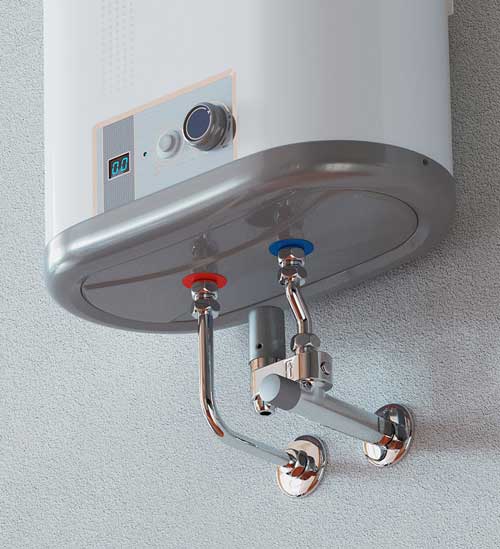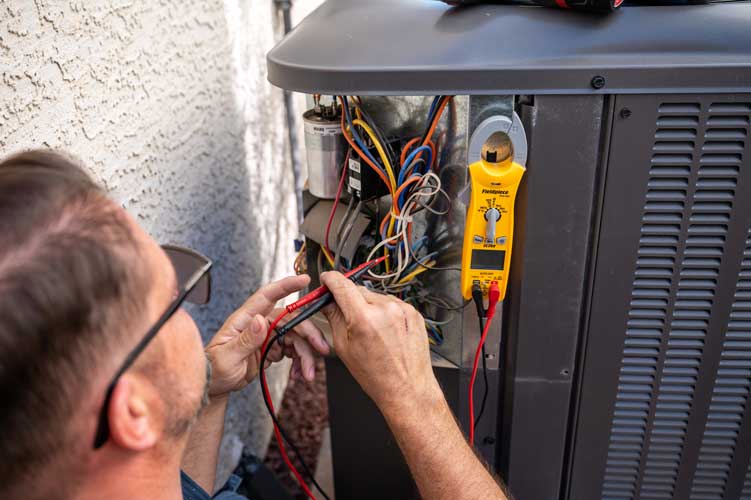Are you finding your Las Vegas home isn’t the right temperature? It’s a familiar woe: the air conditioner unit freezing up, leaving you sweating through a problem instead of cooling down. AC freezing is a common headache for many homeowners during scorching summers, particularly in areas like Las Vegas where reliable AC repair is a must. When your air conditioner succumbs to frosty build-up, it’s often due to a combination of factors like restricted air flow, low refrigerant levels, or even extra warm air outside. In such cases, seeking professional Las Vegas AC repair services can be the quickest way to get back to comfort.
But beyond the inconvenience of a suddenly warm home, an AC freezing can signal bigger problems, impacting not just its performance but potentially leading to costly repairs if left unattended. Let’s dive into what causes this chilling setback and what steps can thaw out your air conditioning system back to its efficient, breezy best.

The Science Behind Air Conditioner Freezes
When your air conditioner decides to mimic the Arctic, there are a few common culprits behind its icy transformation. One frequent suspect is restricted airflow, often due to clogged air filters or obstructed vents. When air struggles to circulate, the evaporator coil temperature plummets, causing condensation to freeze. Low refrigerant levels are another notorious instigator of a frozen ac unit; without sufficient refrigerant, the evaporator coil can become excessively cold, leading to ice formation. Additionally, problems with the evaporator coil itself, such as dirt or grime buildup, can hinder proper heat exchange, triggering poor air flow and the chilling effect. Essentially, both airflow and refrigerant levels play a pivotal role in maintaining the delicate balance within your AC unit. When these factors falter, the consequence can be a frosty air conditioning unit that leaves you hot under the collar.
First Response: What to Do When Your AC Freezes
When your AC decides to chill out a little too much, it’s crucial to thaw out the situation promptly.
Turning Off Your AC to Prevent Further Damage
First things first, turn off the air conditioning system to halt further freezing and potential damage. Doing so is crucial for a few reasons. For one, it stops the continued cooling process that’s causing the freeze. When the air conditioner continues to run while frozen, it can exacerbate the problem, leading to more ice formation and potentially damaging vital components like the compressor or the evaporator coil.
Secondly, it allows the unit to defrost naturally. Running a frozen HVAC system risks circulating the cold air throughout your home, hindering the thawing process and prolonging the issue. By shutting it down, you give the system a chance to warm up, allowing the ice to melt away more effectively.
Lastly, it gives you the opportunity to inspect and address the problem. Once the air conditioner is off, you can check for visible issues like clogged filters or blocked vents, taking steps to remedy these problems before restarting the AC.
Checking and Replacing Air Filters for Improved Air Flow
Then, take a peek at your air filters. If they’re clogged, replace or clean them to restore proper airflow. Give your unit some breathing space by ensuring all vents and registers are unobstructed. While you’re at it, gently thaw any visible ice on the evaporator coil using a fan or by letting the unit sit idle.
Remember, patience is key — rushing the thawing process of a frozen air conditioner can lead to more problems. Once you’ve taken these initial steps, resist the temptation to switch the AC back on immediately. Giving air conditioners the time to defrost completely, and consider seeking professional help to investigate any underlying issues causing the freeze-up.
When to Call a Professional
#1 Repeated Freezing: Air conditioner freezes are a sign of trouble. If your AC freezing up is happening frequently despite your attempts to address the issue, it’s a sign of a deeper problem that likely requires professional expertise.
#2 Extensive Ice Buildup: If the ice buildup on your evaporator coil is substantial or extends beyond what seems normal, it indicates a more serious issue that needs professional attention.
#3 Leaks or Strange Noises: Any signs of leaks, unusual noises (like hissing or banging), or strange odors coming from the AC unit suggest potential mechanical problems that require a professional’s assessment.
#4 Electrical Concerns: If you suspect electrical issues, such as tripped breakers or frequent disruptions when the AC freezes, it’s safer to have an HVAC professional inspect the unit.
#5 Lack of Cooling: If the AC doesn’t cool your space adequately even after thawing, it indicates underlying issues beyond simple freezing, necessitating professional diagnosis and repair.
When in doubt or if you’re unable to identify the root cause of the freezing issue, it’s wise to contact a certified HVAC technician. They have the expertise and tools to diagnose and fix complex AC problems, ensuring your system operates efficiently and safely.
Stopping the Freeze: Preventative Measures for Your AC
Regular maintenance and smart usage practices can be your AC’s best friends, preventing future freeze-ups and ensuring its longevity. Start by keeping a diligent maintenance schedule: change or clean the air filter regularly, ideally every 1-3 months, to ensure proper airflow and prevent debris buildup in a dirty air filter that can hinder performance. Keep vents and registers unobstructed to maintain optimal airflow throughout your home. Schedule annual professional maintenance, allowing HVAC technicians to inspect, clean, and tune-up your AC system to catch any potential issues before they escalate.
In terms of usage, avoid drastic temperature changes on your thermostat; aim for gradual adjustments instead of sudden extremes that strain the system. Additionally, ensure your home is well-insulated to minimize the strain on your AC caused by external temperature fluctuations. On scorching days, give your AC a breather by setting it a few degrees higher when you’re away, reducing its workload without sacrificing comfort. Lastly, if you notice any signs of trouble, like reduced airflow or odd noises, address them promptly to prevent minor issues from snowballing into major freezing episodes. Consistent care and mindful usage can keep your AC unit humming happily and frost-free throughout the seasons.

Keeping Your Cool: A Guide to a Healthy AC System
To address a frozen AC unit:, you’ll want to do the following.
Immediate Action: Turn off the AC to halt further freezing. Check and clean/replace air filters, and ensure unobstructed airflow by clearing vents and registers. Gently thaw visible ice.
Patience: Allow the unit to defrost completely before considering restarting it. Rushing this process can worsen the issue.
Knowing When to Call a Pro
Seek professional help if the freezing recurs frequently, if there’s extensive ice buildup, or if you notice leaks, odd noises, or electrical concerns.
To prevent future freeze-ups:
Regular Maintenance: Change and/or clean air filters regularly, maintain unobstructed airflow, and schedule annual professional maintenance to catch and address issues early.
Smart Usage: Avoid sudden temperature changes on the thermostat, ensure proper insulation, and give the AC breaks by adjusting settings when away.
Consistent care, regular maintenance, and prompt professional assistance when needed are key to preventing and addressing frozen AC units, ensuring efficient and trouble-free cooling. If you need help with what to do when your ac unit freezes up, Active Plumbing and Air Conditioning is here for you. Call us for any and all air conditioner-related problems you’re experiencing.
